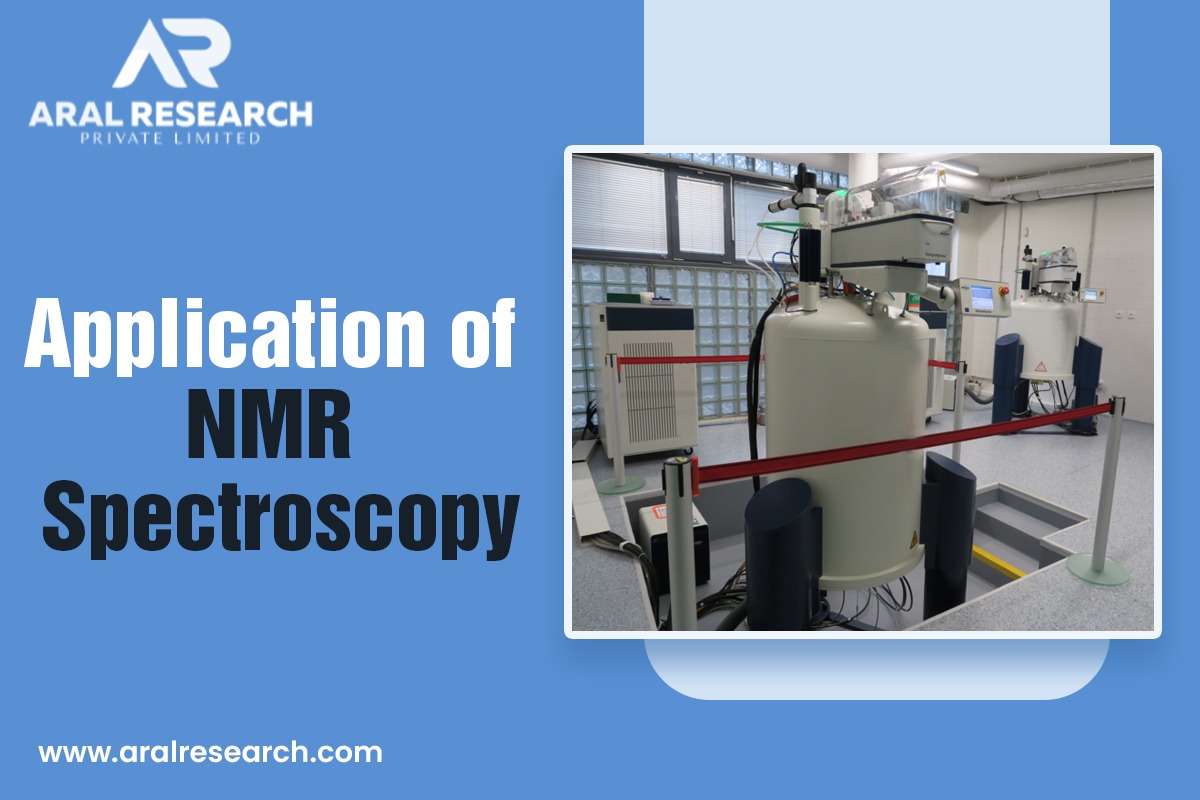Nuclear Magnetic Resonance (NMR) spectroscopy is a powerful analytical tool to study the molecules with an atomic level of information. NMR is widely used in the pharmaceutical industry for molecular, structural and other information. For instance, it has been instrumental in the development of new drugs by providing insights into their molecular structures. From small biomolecules, metabolites, and impurities, NMR spectroscopy plays a pivotal role in the fields of research, chemistry, pharmaceuticals, and life science. So, what are the uses of NMR spectroscopy? Let’s delve into the variety of applications of NMR spectroscopy in different fields.
What is Nuclear Magnetic Spectroscopy (NMR)?
Nuclear Magnetic Spectroscopy (NMR) is a specialized form of spectroscopy that determines the molecular identity, structure and behaviour of chemical compounds and composites. NMR spectroscopy provides a detailed understanding of excipients, pharmaceutical formulations and intermolecular interactions, which is helpful in drug development.
How Does Nuclear Magnetic Spectroscopy (NMR) Work?
The concept behind NMR is the study of the atom’s chemical environment. As a matter of fact, the atom is considered to be the foundation of all matter, and it consists of electron, proton, and neutron particles. NMR analysis focuses on the nature of the atom’s nuclei, the spinning of nuclei and the properties of nuclei. Every nucleus has its own magnetic field. As follows, nuclear magnetic resonance happens when the specific nuclei in the atom’s static magnetic field experience charges from the powerful oscillating electromagnetic field. With the help of RF (Radio Frequency), through low-energy protons, the nuclei absorb higher energy levels that influence their spins. The atomic nuclei resonate in response to provide a full spectrum observation.
Application of NMR Spectroscopy
- NMR Spectroscopy for Compound Synthesis and API Analysis
Nuclear Magnetic Spectroscopy plays a pivotal role in pharmaceutical development. Aral Research, with its precise and accurate evaluation and analysis of developed pharmaceutical products, ensures they are safe and efficient for clinical usage. NMR technology, known for its quantitative analysis for compound synthesis, helps inspect, clarify and confirm accurate compound structures. This enables the identification of purity profiles, the composition of ingredients in drugs and characteristics, ensuring high quality and standards. Contact Aral Research today to meet your specific research needs and experience the confidence that comes with our NMR spectroscopy services.
- NMR Spectroscopy for Medical Diagnosis
Nuclear Magnetic Resonance Imaging (MRI) is a medical diagnosis equipment to help healthcare professionals study the human body and its functions. The results of the electromagnetic spectrum help physicians study the neurological, musculoskeletal, oncology, and cardiovascular systems. Used as an imaging tool, NMR provides accurate results with menial risk.
- NMR Spectroscopy for Laboratory Research
NMR technology, with its versatility and comprehensive capabilities, is a valuable tool in lab research. It provides information related to chemical and biological compounds, helping determine the purity, content, and molecular structure of the sample. Advanced 1D analysis is employed to study chemical structure, and 2D advanced analysis is used to determine the structure of complicated molecules.
Conclusion
Nuclear Magnetic Resonance (NMR) spectroscopy is a special branch of spectroscopy that uses the magnetic properties of the atomic nuclei for molecular identification and elucidation. Aral Research provides high-quality NMR analysis for protein-protein interaction, assessing bioequience and small molecule screening. Our lab is equipped with HPLC, UPLC, MS and NMR spectroscopy. Call us today and discuss your research requirements.

